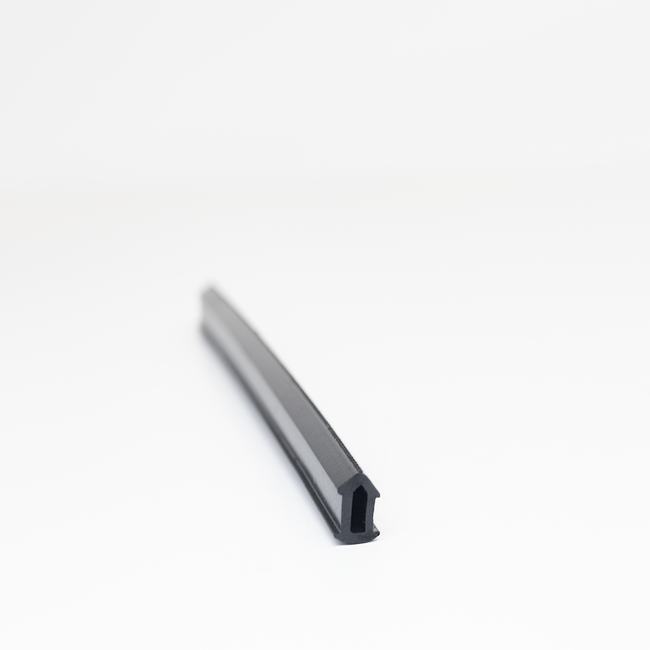Industrial seals are critical components used in a wide range of applications and industries to prevent the leakage of fluids or gases and to contain or protect equipment, machinery, and systems. These seals come in various forms and materials, each tailored to specific needs and environments. Their primary purpose is to ensure the integrity and performance of industrial processes, promote safety, and minimize environmental impact. In this comprehensive description, we will explore the types, applications, materials, and importance of industrial seals.
Types of Industrial Seals:
- Gaskets: Gaskets are flat or ring-shaped seals typically made of materials like rubber, silicone, metal, or composite materials. They are placed between two mating surfaces, such as flanges, to create a leak-tight seal.
- O-Rings: O-rings are circular seals, often made from rubber or elastomers, that are used in dynamic or static applications. They are placed in grooves or between parts to prevent the passage of fluids or gases.
- Lip Seals: Lip seals, also known as oil seals or rotary shaft seals, are used to prevent the escape of lubricants and to protect bearings and other rotating machine components.
- Mechanical Seals: Mechanical seals are advanced seals used in rotating equipment, such as pumps and compressors, to prevent leakage and maintain a barrier between the rotating and stationary parts.
- Hydraulic Seals: Hydraulic seals are used in hydraulic systems to prevent fluid leakage and maintain pressure, enabling the operation of hydraulic cylinders and valves.
- Pneumatic Seals: Pneumatic seals are designed for air or gas applications and are commonly found in pneumatic cylinders, valves, and actuators.
- Expansion Joints: Expansion joints, or flexible connectors, are used to absorb movement and vibrations in pipes and ducts, allowing for thermal expansion and contraction without damaging the system.
- High-Pressure Seals: These seals are specifically designed to withstand extreme pressure conditions, commonly found in hydraulic systems, drilling equipment, and high-pressure industrial processes.
- Cylinder Seals: Cylinder seals are used in hydraulic and pneumatic cylinders to prevent fluid leakage and maintain smooth operation.
Applications of Industrial Seals:
Industrial seals have a wide range of applications, including:
- Manufacturing: Seals are used in machinery and equipment in manufacturing processes to prevent leaks and contamination, ensuring product quality and worker safety.
- Oil and Gas Industry: Seals are critical in wellheads, valves, pipelines, and drilling equipment to prevent leaks and maintain the integrity of oil and gas production.
- Aerospace: In the aerospace industry, seals are used in engines, landing gear, and hydraulic systems to ensure the safety and reliability of aircraft.
- Automotive: Seals are found in engines, transmissions, and other automotive components to prevent fluid leaks and ensure optimal performance.
- Chemical Processing: Seals are used in pumps, reactors, and other equipment in chemical plants to prevent hazardous leaks and maintain the purity of chemicals.
- Food and Beverage Industry: Seals play a role in food processing equipment to prevent contamination and ensure food safety.
- Pharmaceuticals: In pharmaceutical manufacturing, seals are used to maintain sterile environments and prevent contamination in production processes.
- Water and Wastewater Treatment: Seals are used in pumps, valves, and pipelines to prevent leaks and maintain the efficiency of water and wastewater treatment systems.
- Mining and Construction: Seals are used in heavy machinery, such as excavators and bulldozers, to prevent hydraulic fluid leaks and maintain equipment performance.
Materials Used in Industrial Seals:
Industrial seals are made from a variety of materials to suit specific applications, including:
- Rubber and Elastomers: Common for O-rings and gaskets, rubber materials are flexible, resilient, and resistant to many chemicals.
- Metal: Metal seals, often made from alloys like stainless steel, provide high-temperature and pressure resistance and are used in high-performance applications.
- PTFE (Polytetrafluoroethylene): PTFE seals are highly chemical-resistant and used in applications requiring non-stick properties.
- Polyurethane: Polyurethane seals are used in hydraulic and pneumatic systems, offering durability and flexibility.
- Silicone: Silicone seals are known for their flexibility and resistance to extreme temperatures, making them ideal for food and medical applications.
- Nitrile: Nitrile rubber is used in applications requiring oil and fuel resistance, such as automotive seals.
- Viton: Viton is a fluoroelastomer known for its chemical resistance and is commonly used in industrial sealing applications.
Importance of Industrial Seals:
- Leakage Prevention: The primary function of industrial seals is to prevent the escape of fluids or gases, which is essential to maintain the integrity of processes and prevent environmental contamination.
- Safety: Seals in critical applications, such as those in the oil and gas industry or chemical processing, are crucial for safety by preventing hazardous leaks and accidents.
- Efficiency: Seals help maintain the efficiency of equipment and systems by preventing energy loss, reducing downtime, and extending the lifespan of components.
- Environmental Protection: Seals play a vital role in environmental protection by preventing the release of pollutants, contaminants, or hazardous materials into the surroundings.
- Quality Assurance: In industries like food and pharmaceuticals, seals ensure product quality by preventing contamination and maintaining sterile conditions.
- Cost Savings: Effective sealing solutions reduce maintenance costs, increase equipment reliability, and minimize the need for repairs and replacements.
- Performance Enhancement: Seals can improve the performance and functionality of equipment by reducing friction, preventing wear, and minimizing vibration.
In summary, industrial seals are indispensable components that serve as a barrier against leaks, contamination, and environmental damage in various industrial applications. Their role in ensuring safety, efficiency, and the protection of equipment and the environment underscores their significance in modern industrial processes. The choice of the right type and material of seal is critical to achieving optimal performance and safety in each specific application.

